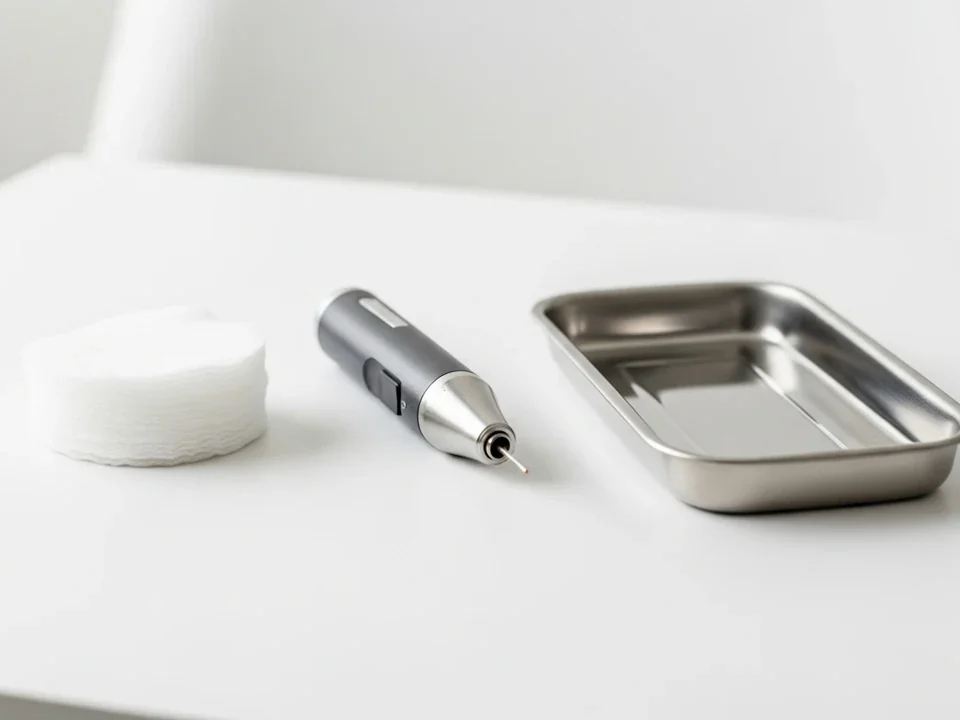
Why No Dairy after Dental Implant?
July 3, 2024
Can You Eat with Snap-on Veneers?
July 10, 2024If you want to get dental implants but you are afraid of the pain, you’re not alone. Many patients worry about that. Fortunately, there is a reassuring way. Sedation and implant dentistry offers a way to guarantee you remain comfortable and relaxed throughout your procedure. Let’s dive into the process and see what you can expect.
Is Sedation Needed for Dental Implants?
Yes, it is often recommended for implant procedures, especially if you feel anxious or have a low pain tolerance. Since implants involve placing metal posts into your jawbone, their process can be lengthy and complex, so sedation helps to make the experience more comfortable and stress-free. Sedation and implant dentistry is not always mandatory, but it is highly beneficial for many patients.
What Type of Sedation is Used for Dental Implants?
There are several types of sedation and implant dentistry types and methods. Let’s take a look:
Nitrous Oxide (Laughing Gas)
Nitrous oxide is a mild sedative. During the procedure, you can inhale it through a mask placed over your nose. It relaxes you and provides a sense of well-being. This type is ideal for mildly anxious patients. The gas acts quickly and wears off just as fast, allowing you to drive yourself home after the procedure.
Oral Sedation
It includes taking a pill that ranges from mild to moderate strength. It helps you feel drowsy and relaxed, but you are still awake. This method is perfect for patients with moderate anxiety levels or patients who need a longer relaxation period. Dentists can easily use it and offer a deeper sense of calm compared to nitrous oxide.
IV Sedation
Dentists perform this type by inserting a needle into a vein, usually in your arm or hand. This method results in a deeper level of sedation. You will remain conscious but extremely relaxed, with little to no memory of the procedure afterward. It method is particularly beneficial for patients with significantly high anxiety levels or those undergoing lengthy procedures. Since the IV method has profound sedative effects, you need to arrange for someone to drive you home after the procedure. Remember, you will not be able to drive a vehicle safely.
General Anesthesia
General anesthesia puts you completely asleep during the dental procedure. Dentists perform it via an IV or inhalation. This type is exclusively for complex cases or patients with extreme dental anxiety. This method requires careful monitoring by an anesthesiologist and involves a longer recovery time. Remember, you will need someone to accompany you home.
Do They Put You to Sleep for Dental Implants?
No, you are not typically put to sleep for dental implants in Arizona. As mentioned, most implant procedures are done with local anesthesia and conscious sedation (like oral or IV). However, dentists may use general anesthesia in specific cases, particularly for patients with severe anxiety or when multiple implants are placed simultaneously.
Are You Put to Sleep for a Dental Bone Graft?
General anesthesia is usually not necessary for a dental bone graft. Dentists perform most bone grafts with local anesthesia, and if needed, oral or IV sedation can help you relax. General anesthesia may be considered for extensive grafting procedures or very anxious patients.
Benefits of Sedation in Implant Dentistry
In Arizona, sedation and implant dentistry have these benefits:
- Reduces anxiety and keeps you calm and relaxed.
- Relieves pain and ensures the procedure is pain-free.
- Helps you manage a strong gag reflex.
- Makes the procedure feel shorter.
- Increases overall comfort during the procedure.
Is Sedation Dentistry Safe?
Yes, sedation dentistry is safe when a qualified professional performs it. Expert dentists assess your medical history and current health status before choosing the appropriate sedation level. They also monitor your vital signs throughout the procedure to ensure your safety.
Recovery and Aftercare for Sedation Implant Dentistry
The recovery time for various kinds of sedation for dental implants includes:
- Nitrous oxide has an immediate recovery. You can drive home after the process.
- Oral sedation takes several hours to wear off. You need to arrange for someone to pick you up.
- IV Sedation takes a few hours. Arrange for transportation.
- General Anesthesia takes 24 hours. You better arrange for transportation and rest.
Aftercare tips include:
- Take it easy and rest for the remainder of the day.
- Drink plenty of water and hydrate properly.
- Avoid doing heavy physical activities for at least 24 hours.
- Follow any specific aftercare tips provided by your dentist.
Sedation and Implant Dentistry Near Me In Phoenix, Arizona
If you’re looking for expert sedation and implant dentists in Phoenix, Arizona, Atrium Dental is here to help. Our experienced team ensures your comfort and care throughout the entire process. Contact us today at Atrium Dental to schedule your consultation and take the first step toward a healthier, more confident smile.
Conclusion
Sedation and implant dentistry can significantly improve your dental experience, making complex procedures like dental implants more comfortable and stress-free. By understanding your options and what to expect, you can approach your dental treatment with confidence and peace of mind.
FAQs
Are you put to sleep for dental implants?
No, general anesthesia is rarely used. Most procedures use local anesthesia with oral or IV sedation.
Do I need anesthesia for dental implants?
Yes, local anesthesia is used to numb the area. Sedation options are available for added comfort.
Who does sedation dentistry near me?
Atrium Dental offers sedation dentistry in Phoenix, Arizona. Contact us for more information.



